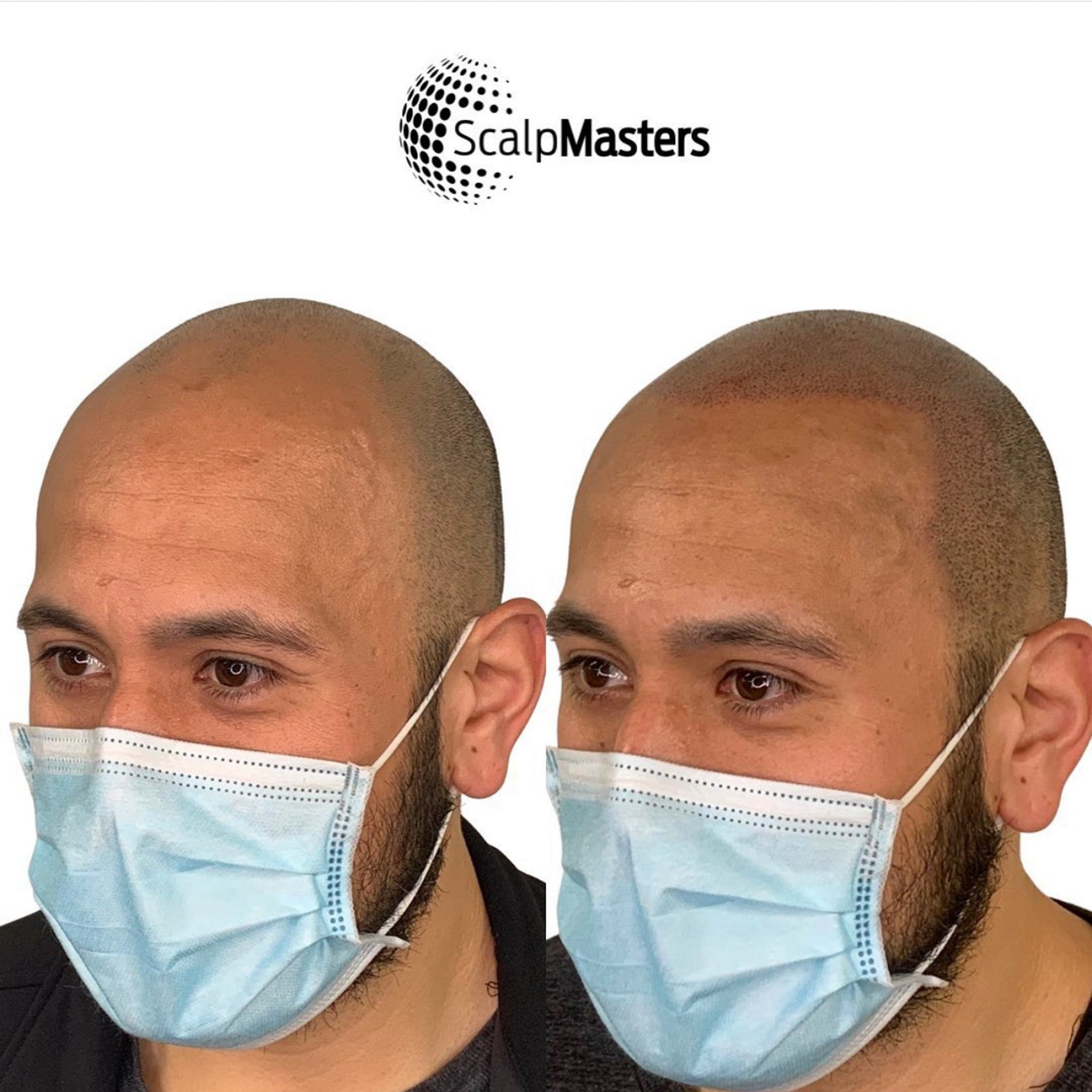If you have recently gotten over Covid-19 and are experiencing hair loss, you may be asking yourself, “Should I be worried?” In most cases, the answer is no. Most people are aware of the more common lasting symptoms of Covid-19, such as loss of smell and cognitive impairment, however, many don’t associate the disease with hair loss. Here is what you should know.
It is Common
Long before Covid-19, it was already well known that major stress or severe illness can lead to noticeable hair loss. This remains consistent with Covid-19 patients as well. Some research has shown that up to 22% of hospitalized Covid-19 patients experienced some kind of temporary hair loss. Furthermore, hair loss has been considered one of many persisting symptoms related to Covid-19, even after a patient has recovered. This sudden and temporary hair loss is referred to as telogen effluvium, and is not tied only to Covid-19. Many other factors and high stress situations can lead to this kind of hair loss, like blood loss, childbirth, surgery and extreme emotional events. Unfortunately, it is believed that patients who have been infected with Covid-19 are more likely to develop hair loss than those who have not been infected. The good news, however, is that oftentimes, it is temporary. Although it may seem like a long time, sometimes stretching between six and nine months before seeing improvement, the majority of people do eventually seem to recover as their scalp and hair return to normal.
What Should You Do?
If you are experiencing sudden hair loss, it is totally normal to be a little worried or concerned. Oftentimes, it becomes obvious to ourselves before anyone else would even notice. If this is the case, it may be smart to see a doctor and consult with them. They can run some tests, take blood work, and properly diagnose your condition. If you are experiencing telogen effluvium, the easiest thing you can do is wait. As mentioned before, this condition is common among Covid-19 patients, and is most likely temporary. Simple tricks to help the process can include a better diet, more effective ways at managing stress, and to avoid heat-styling tools or hairstyles that create a lot of tension in the hair, like pony-tails. Although some people may find success in supplements and other non-traditional treatments, there are many doctors who would advise against it. Make sure to do your own research before trying any further treatments.
What if it Doesn’t Get Better?
In the unfortunate case that your hair loss doesn’t improve after a significant amount of time, it may be in your interest to look for more serious treatment. We at ScalpMasters understand the burdens of hair loss and the emotional and physical tolls it can have on a person. If you are concerned about the health of your hair and scalp, we have the answers and solutions you may be looking for. With proper training and experience, we are confident we can help. If you are dealing with hair loss, make sure to contact us today so we can begin the process of restoring the health of your hair!



